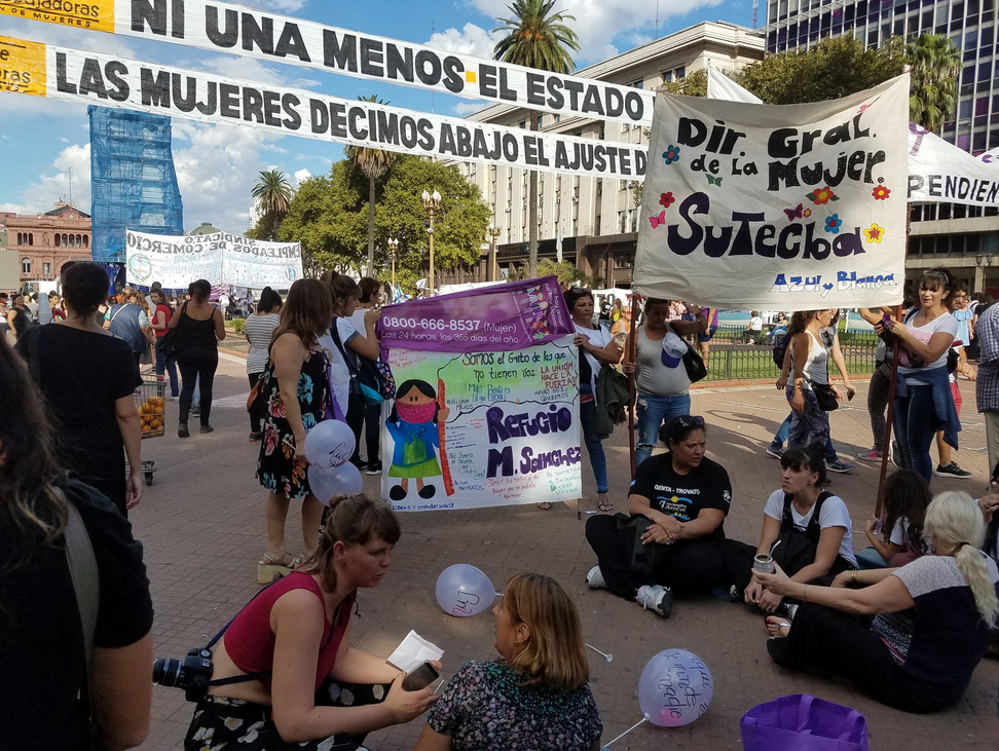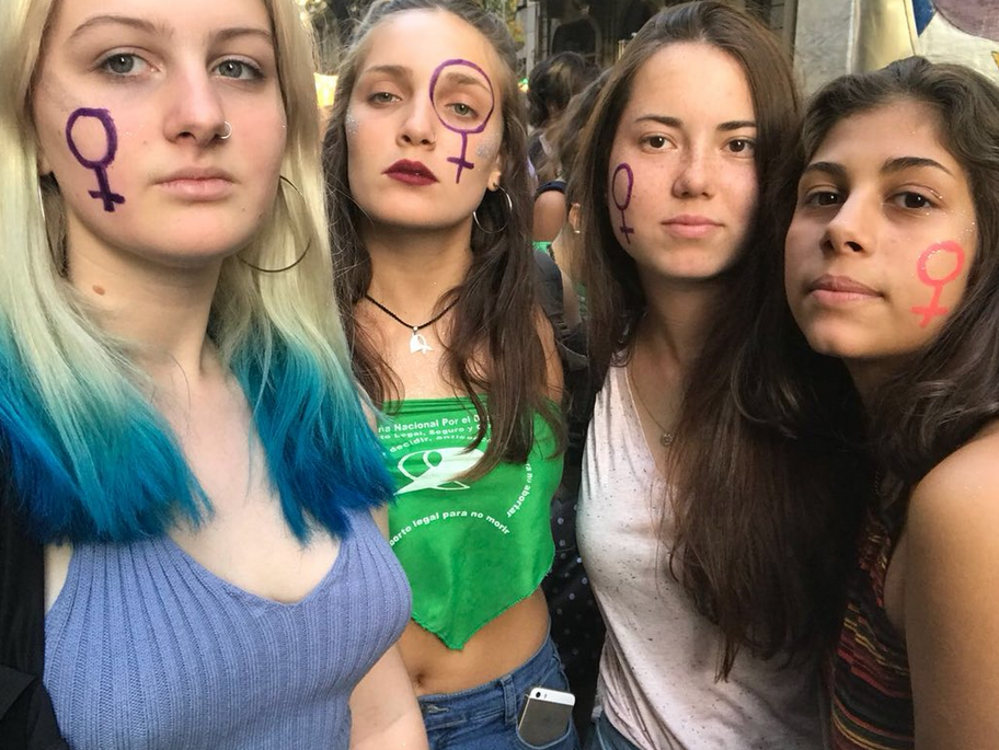BUENOS AIRES, Argentina (ViaNews) - On the "International Women’s Day" last Thursday, March 8, a massive gathering took place all over Argentina. From the Jujuy’s Province in the north to the southernmost province Tierra del Fuego, women who attended protests and were represented by the colour purple, started claiming basic human rights, equality between the genders, and, most importantly, the right to abortion, which was represented by the colour green used by the Feminist Movement and the National Campaign for the Right to Abortion.
"Educación sexual para decidir, anticonceptivos para no abortar, aborto legal para no morir"
Sex education to decide, contraceptives to not abort, legal abortion to not die.
The feminist movement has become a strong, serious and relevant organization all through Argentina, and it was particularly incredible to see how women took the streets of Buenos Aires, where thousands of women from all ages, social backgrounds, religions, and ethnicities took the city centre to show their support to one of the biggest marches in the national history.
"Ni una menos"
Not one (woman) less.
It was back in 2015 when the first protest was organized by this group because a woman named Daiana García was brutally murdered by his then partner. One of the biggest problems in this society is femicide, which means that a woman or a girl has been murdered by a man, based on her gender. Thus, femicides are gender-related crimes.
This demonstration also helped to gain attention to social media with the hashtag "#Niunamenos", and little by little the organization started calling for more protests against the constant killings of women while creating an awareness in regards to how dangerous it is to be a woman in Argentina, a country were ‘machos’ are found in every corner.
It is fair to say that the feminist movement worldwide and especially in Argentina has many faces, shapes, forms, and ways of thinking, and one of its aims is to participate in an open, public and responsible debate in order to stop being in an unequal society. It has also touched on other relevant topics such as transgender rights, sexual objectification, femicides, gender pay gap, sexual harassment, gender roles and lately, the legality of abortion.
[caption id="attachment_3872" align="aligncenter" width="999"]

Women's march in Buenos Aires, Argentina. Femicide remains an issue for Argentina, where NGOs estimate domestic violence kills to reach a woman daily. Photo by: Carolyn Conte.[/caption]
Society Today
This year’s march, however, went further along by demanding a free and safe abortion, something that was unthinkable a couple of years ago. Bearing in mind that in the austral country is still illegal for women to abort in case of rape or risk of life for the mother.
Even though Argentina counts with several laws that are quite acceptable within the public, such as: "Law against violence towards women", "Law in regards to Legislative Parity", "Law in favour of same-sex marriages", and "Gender Identity Law", one of the few laws missing is the one that de-penalizes abortion and for women to obtain the same salaries as men.
[caption id="attachment_3880" align="aligncenter" width="999"]

Women's day march participants supporting women’s rights in Argentina. Photo by: Zoe.[/caption]
Feminism Vs. Macri (Argentina’s President)
As always, Macri was trying to gain momentum by taking advantage of this massive rally that happened on the International Women’s day, as he announced firstly, a Law against the gender breach salaries, that according to some news it is over 27% difference. And, secondly, he has stated that there will be an open debate about abortion, even though it is precisely his political party of Cambiemos (Let’s change) which has continuously interrupted the legalization of abortion.
In fact, Macri has formed a government that is very distant to gender parity, he has only named two women as Ministers in comparison to the 19 men who also have this job.
Let’s Criminalize Femicides
Argentina faces a MASSIVE problem underneath all the laws that the government is trying to implement because there is still a ‘machista’ society that no one manages to stop and it is reflected on the number of femicides that occur daily.
On the 6th of March 2018, just two days before the International Women’s Day march, in Santiago del Estero (a Province in the north of the country), a 14 years’ old teenager was brutally murder at a party she was attending alongside her boyfriend and his family. Her name was Marta, and she was 4 months pregnant with her first child. The primary suspect is her boyfriend.
How is it possible that in 2018 at least one woman dies every 30 hours because of a gender-related crime? However, what is even more terrible is the fact that the criminals who commit these murders are usually given low term jail sentences (that is assuming they receive a jail sentence), or are left unpunished by the same judicial system that the government is praising so vehemently.
 Women's march in Buenos Aires, Argentina. Femicide remains an issue for Argentina, where NGOs estimate domestic violence kills to reach a woman daily. Photo by: Carolyn Conte.[/caption]
Women's march in Buenos Aires, Argentina. Femicide remains an issue for Argentina, where NGOs estimate domestic violence kills to reach a woman daily. Photo by: Carolyn Conte.[/caption]
 Women's day march participants supporting women’s rights in Argentina. Photo by: Zoe.[/caption]
Women's day march participants supporting women’s rights in Argentina. Photo by: Zoe.[/caption]

